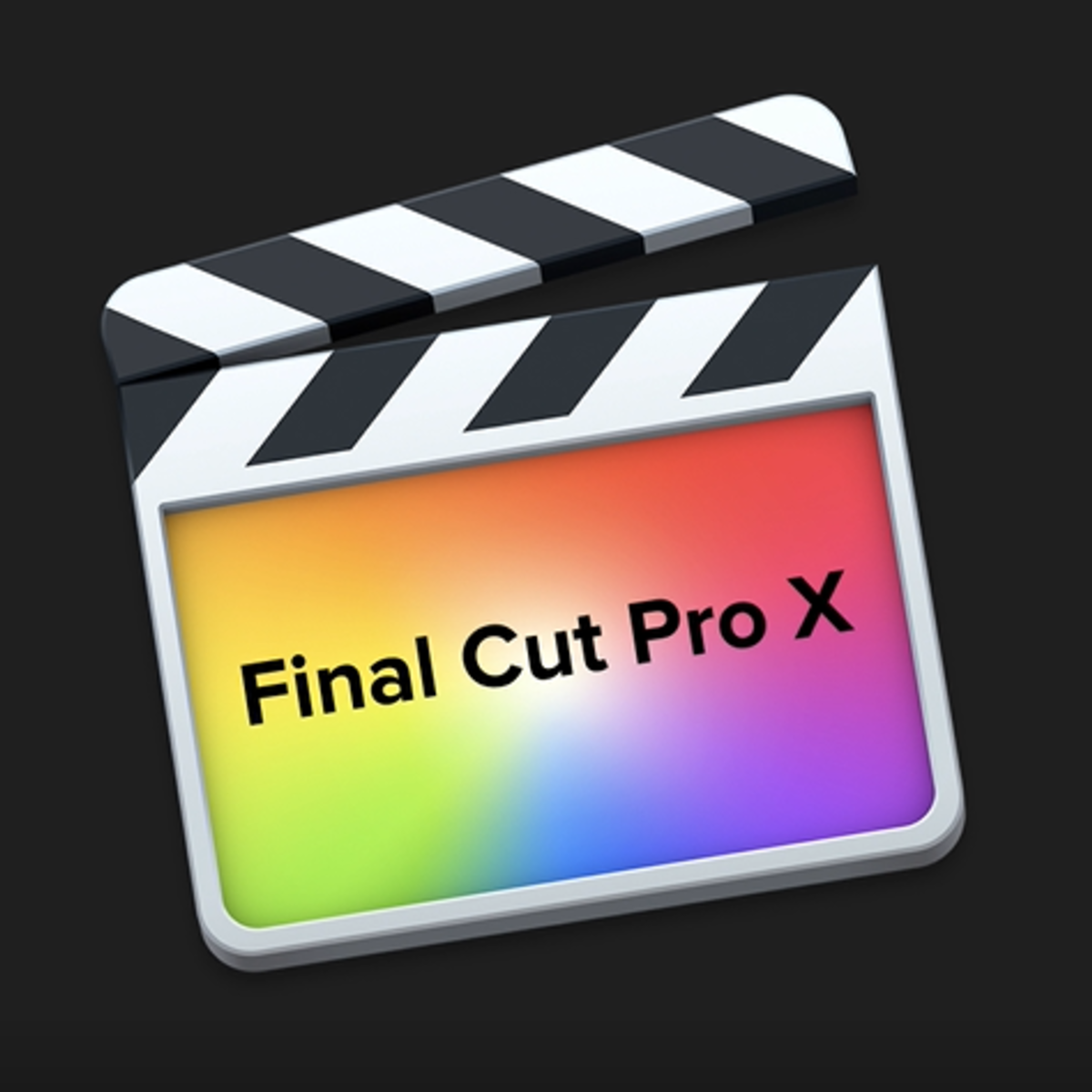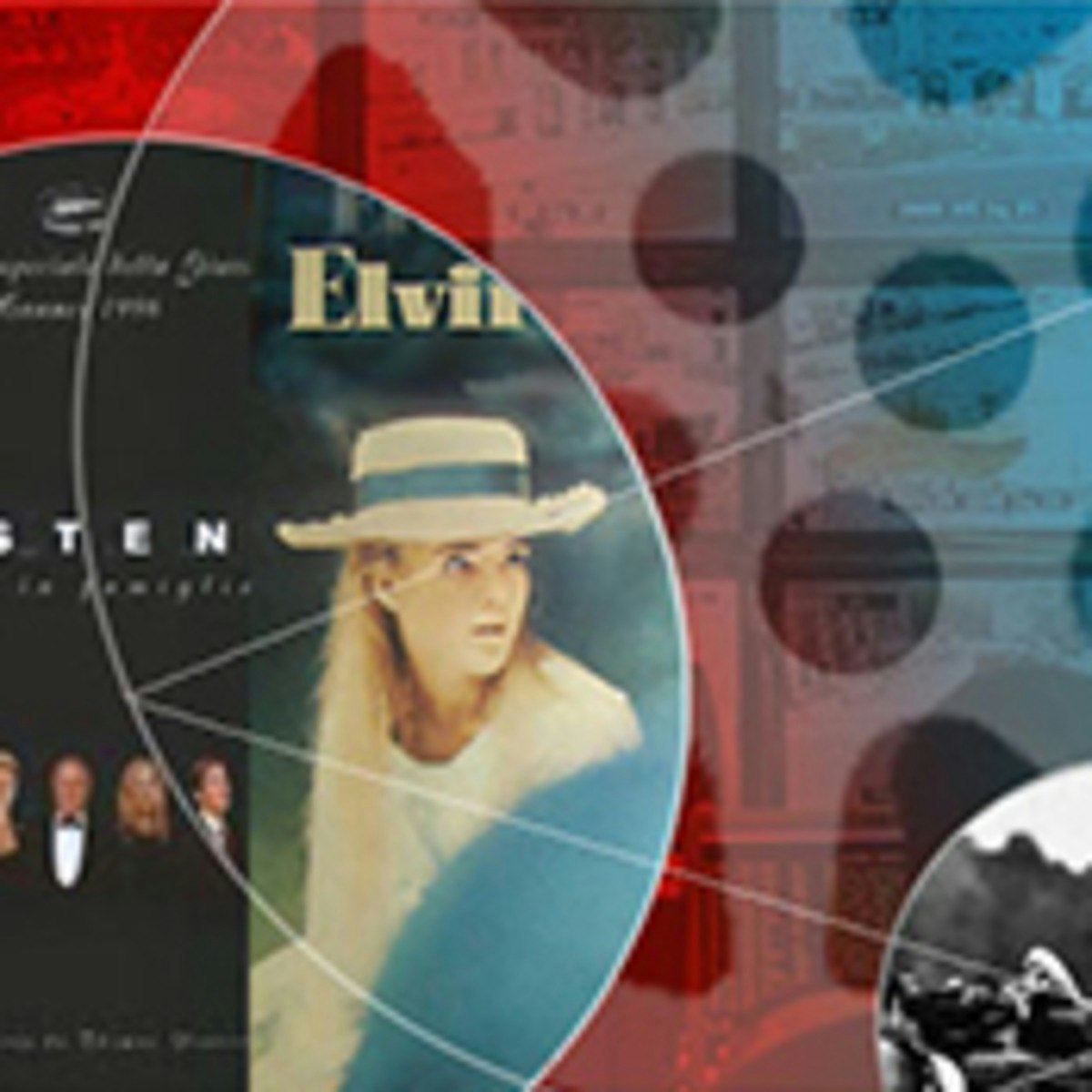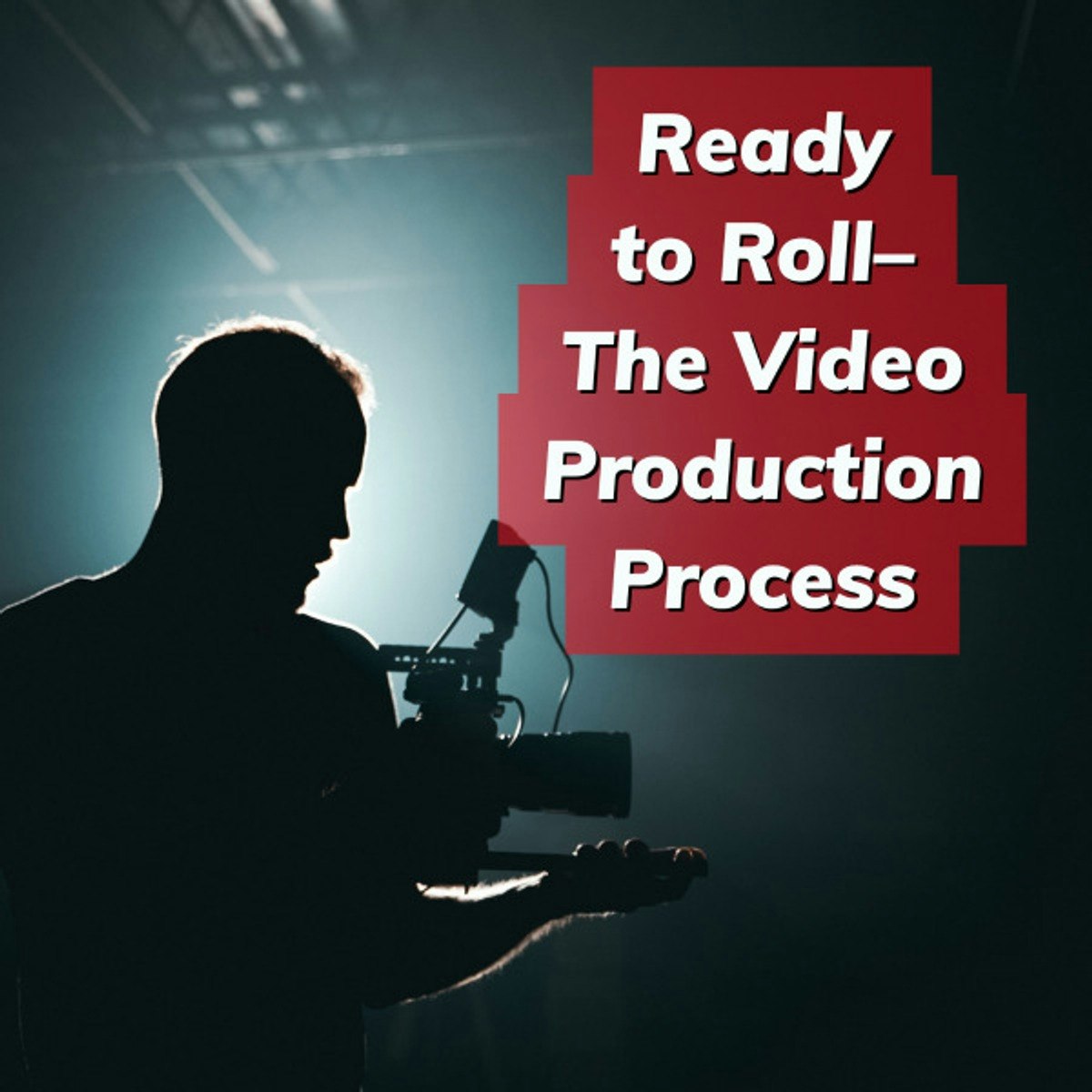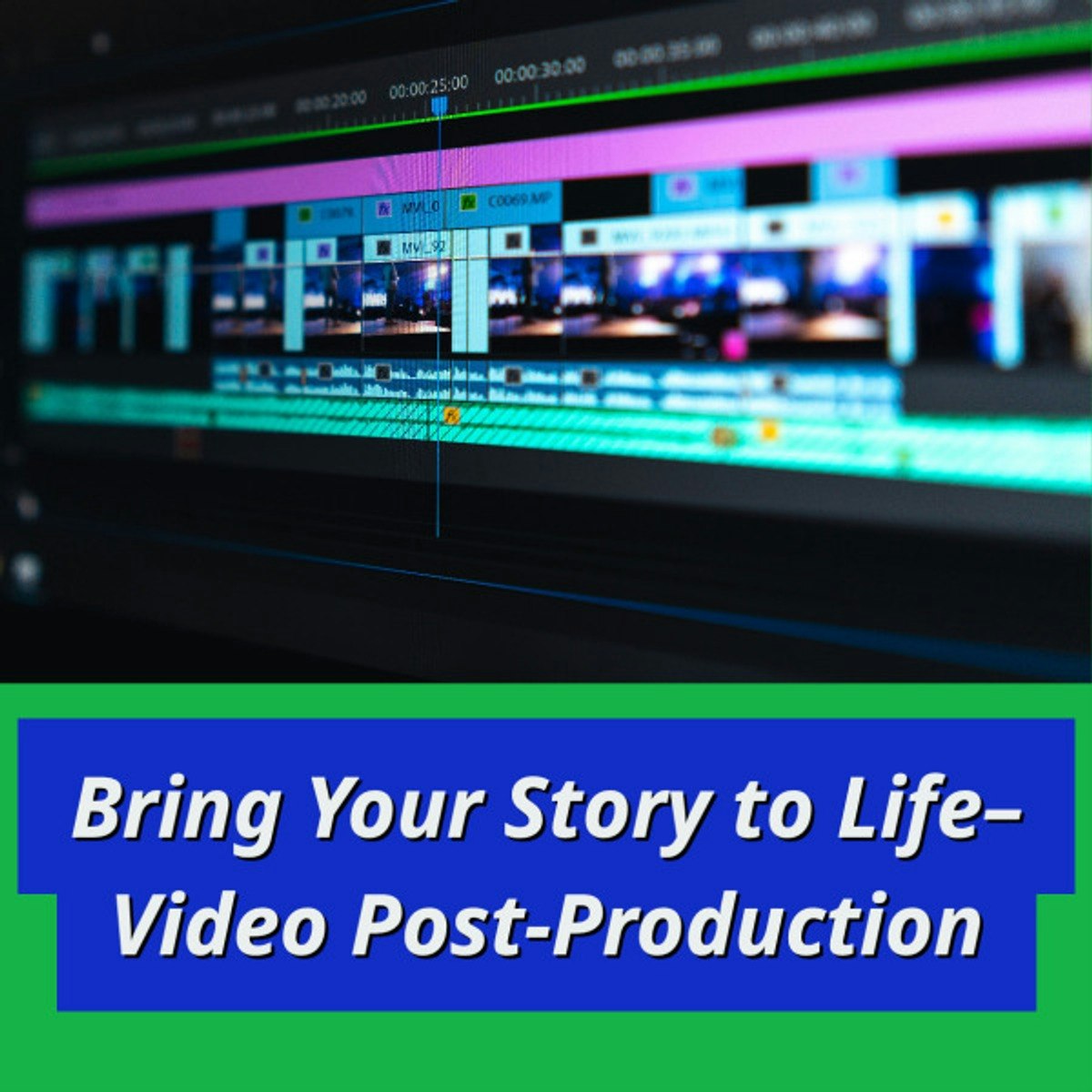Video Editor
A Career Guide to Video Editing
Video editing is the art and craft of assembling video footage, audio, and graphics to create a compelling final product. It involves selecting the best takes, sequencing shots logically, enhancing visuals, adding sound effects and music, and ensuring the final video effectively communicates its intended message. More than just cutting clips, video editing is a crucial part of the storytelling process across various media.
Working as a video editor can be deeply engaging. You have the power to shape narratives, evoke emotions, and bring a director's vision to life. The role often involves a satisfying blend of technical skill and creative decision-making. From transforming raw footage into polished films to crafting dynamic social media content, the impact of a skilled editor is undeniable.
Introduction to Video Editing as a Career
What Does a Video Editor Do?
At its core, video editing involves taking raw footage captured during production and refining it into a coherent, finished video. This process includes cutting unnecessary parts, arranging clips in a meaningful sequence, adjusting color and lighting, mixing sound, and adding titles or visual effects. Editors work closely with directors, producers, and other post-production specialists to achieve the desired look and feel.
The scope of video editing has expanded dramatically with the rise of digital media. Editors are no longer confined to traditional film and television; they are essential in advertising, marketing, corporate communications, education, social media content creation, and independent filmmaking. The ability to tell a story visually is a valuable skill in nearly every sector today.
Key tasks involve reviewing all footage, making initial selections (known as selects), creating a rough cut, refining the edit based on feedback, performing color correction and grading, designing or implementing sound design, adding graphics or special effects, and finally exporting the video in appropriate formats for distribution. Collaboration is key throughout this process.
Where Do Video Editors Work?
Video editors find employment across a diverse range of industries. The film and television industry remains a primary employer, with editors working on feature films, documentaries, episodic television, commercials, and music videos. They might work for major studios, production companies, or post-production houses.
The advertising and marketing sectors heavily rely on video editors to create engaging content for commercials, promotional campaigns, and online advertisements. Corporate environments also employ editors for internal communications, training videos, and public-facing content. News organizations need editors to assemble news packages quickly and accurately.
The explosion of online content has created vast opportunities. Editors are needed for YouTube channels, social media platforms (like TikTok and Instagram), streaming services, and educational websites. Many editors also work as freelancers, taking on projects for various clients across different industries, offering flexibility and variety in their work.
What Makes Video Editing Engaging?
Video editing is a unique blend of technical proficiency and artistic expression. Editors meticulously piece together shots, manipulate pacing, and use sound and visuals to evoke specific emotions and tell stories effectively. This creative control over the final narrative is a major draw for many in the field.
The collaborative nature of the job can also be highly rewarding. Working closely with directors, sound designers, colorists, and visual effects artists to bring a shared vision to fruition requires strong communication and teamwork skills. Seeing a project evolve from raw footage to a polished final product through collective effort is often deeply satisfying.
Furthermore, the field is constantly evolving with new technologies and techniques. Editors must continuously learn and adapt, experimenting with new software, effects, and workflows. This dynamic environment keeps the work interesting and ensures that skilled editors remain in demand.
Roles and Responsibilities of a Video Editor
The Daily Grind: Workflow and Tasks
A typical day for a video editor often begins with reviewing raw footage provided by the production team. This involves watching hours of material to identify the best takes and understand the available content. Editors then organize this footage, often logging clips and creating bins within their editing software.
The next stage is creating an assembly or rough cut, piecing together the selected shots in sequence to form the basic structure of the video. This initial version focuses on story and flow rather than fine details. Subsequent stages involve refining the cut, adjusting pacing, adding temporary music or sound effects, and incorporating feedback from directors or clients.
As the edit progresses, tasks become more detailed: fine-tuning cuts, smoothing transitions, performing color correction, mixing audio levels, adding titles and graphics, and incorporating visual effects. The final step is exporting the finished video in various formats required for delivery, whether for broadcast, online streaming, or theatrical release.
Collaboration is Key
Video editing is rarely a solitary pursuit. Editors work as part of a larger post-production team and collaborate closely with various stakeholders. The relationship with the director is often paramount, as the editor's primary role is to translate the director's vision into the final cut.
Communication with producers is also crucial, ensuring the project stays on schedule and within budget. Editors interact with sound designers to integrate final audio mixes, with colorists for final color grading, and with visual effects (VFX) artists to incorporate complex shots. In smaller productions, the editor might handle some or all of these roles themselves.
Effective collaboration requires strong communication skills, the ability to interpret creative feedback, and the flexibility to adapt the edit based on input from others. Understanding the roles and contributions of other team members is essential for a smooth post-production process.
Variety in Projects
Video editors work on a wide array of projects, each presenting unique challenges and creative opportunities. Narrative film editing focuses on storytelling, character development, and emotional impact, requiring a deep understanding of cinematic language and pacing.
Documentary editing involves shaping often vast amounts of unscripted footage into a compelling and coherent narrative, often discovering the story within the material. Corporate video editing demands clarity, professionalism, and the ability to convey information effectively within brand guidelines.
Editing for social media platforms like YouTube, TikTok, or Instagram requires speed, dynamism, and an understanding of formats and trends specific to each platform. This includes creating short-form content, optimizing for mobile viewing, and grabbing attention quickly. The diversity of projects allows editors to specialize or maintain variety in their careers.
These courses offer insights into different project types and the skills needed for them.
Essential Technical Skills for Video Editors
Software Proficiency
Mastery of professional video editing software is fundamental. The industry standard platforms include Adobe Premiere Pro, Apple's Final Cut Pro, and Blackmagic Design's DaVinci Resolve. While workflows can differ, core concepts like timeline editing, media management, transitions, and effects are common across platforms.
Premiere Pro is widely used in various sectors due to its integration with other Adobe Creative Cloud apps. Final Cut Pro is popular among Mac users, particularly independent filmmakers and YouTubers. DaVinci Resolve has gained significant traction, initially known for its powerful color grading tools, it now offers a comprehensive editing suite and is available in a robust free version.
Proficiency goes beyond knowing where the buttons are; it involves understanding efficient workflows, keyboard shortcuts, project organization, and troubleshooting common issues. Familiarity with multiple platforms can increase job prospects, though deep expertise in one is often sufficient.
These courses provide comprehensive training in the most popular editing software.
Beyond Cutting: Grading, Graphics, and Sound
Modern video editing often involves more than just assembling clips. Basic color grading skills are essential for ensuring visual consistency and creating specific moods. This includes adjusting exposure, contrast, saturation, and white balance. Familiarity with tools like Lumetri Color in Premiere Pro or the dedicated Color page in DaVinci Resolve is crucial.
Understanding motion graphics basics can also be beneficial. This might involve creating simple titles, lower thirds, or integrating basic animations using software like Adobe After Effects or built-in tools within the editing software. While specialized motion graphics artists exist, editors often handle simpler graphic elements.
Audio synchronization and basic audio mixing are vital. Editors must ensure dialogue is clear, sound effects are timed correctly, and music levels are balanced. This often involves cleaning up background noise, adjusting levels, and applying basic audio effects like EQ or compression.
These courses delve deeper into color grading and motion graphics techniques.
To learn more about color correction theory and practice, consider this handbook.
This book offers insights into sound design principles.
Hardware and Emerging Technologies
Video editing is computationally intensive, requiring powerful hardware. Editors need computers with fast processors (CPUs), ample RAM, dedicated graphics cards (GPUs), and fast storage (SSDs are standard). Understanding hardware requirements helps in choosing the right setup and troubleshooting performance issues.
The field is also influenced by emerging technologies. Artificial intelligence (AI) is increasingly integrated into editing software, offering features like automated transcription, scene detection, AI-powered effects (like smart reframing or object removal), and even AI-assisted editing suggestions. While AI won't fully replace editors soon, understanding how to leverage these tools can significantly speed up workflows.
Other trends include the rise of cloud-based editing workflows, allowing for remote collaboration, and the increasing demand for editing skills related to immersive formats like 360-degree video and virtual reality (VR). Staying updated on these technological shifts is important for career longevity.
This course explores using AI tools relevant to media creation.
Formal Education Pathways
Relevant Degrees and Programs
While a formal degree is not always mandatory to become a video editor, pursuing higher education can provide a strong foundation and valuable industry connections. Relevant degrees often fall under Film Studies, Media Production, Communications, Multimedia Arts, or Digital Media programs.
These programs typically offer a blend of theoretical knowledge and practical skills. Students learn about film history, narrative theory, cinematography, sound design, and, crucially, hands-on editing techniques using industry-standard software and equipment. University settings often provide access to professional-grade studios and gear.
Choosing a program often depends on career goals. Some focus heavily on the technical aspects of post-production, while others emphasize storytelling and filmmaking as a whole. Researching specific university curricula and faculty expertise is important.
Curriculum Highlights: Theory and Practice
A strong film or media program curriculum balances theoretical understanding with practical application. Coursework often includes classes on the principles of editing, exploring concepts like continuity editing, montage theory, pacing, and rhythm. Understanding storytelling techniques is fundamental.
Technical workshops focus on specific software (like Premiere Pro, DaVinci Resolve, or Final Cut Pro) and techniques (color correction, sound mixing, visual effects). Students typically work on various projects throughout their studies, building a portfolio of work that showcases their skills.
Portfolio development is a key component. Assignments might range from editing short scenes or commercials to completing a narrative short film or documentary as a capstone project. These projects provide invaluable hands-on experience and tangible examples of ability for future employers.
These books delve into the theoretical and practical aspects of visual storytelling and film production.
Advanced Studies and Research
For those interested in academia or delving deeper into the theoretical aspects of media, advanced degrees like Master's or PhD programs exist. These often focus on Digital Media Theory, Film Studies, Communication Theory, or related fields.
Research opportunities might explore the impact of editing techniques on audience perception, the evolution of editing styles, the role of technology in post-production, ethical considerations in media manipulation, or critical analyses of film and media. Such programs are typically geared towards careers in teaching, research, or high-level media analysis rather than hands-on editing roles.
A PhD in a related field requires rigorous academic research, culminating in a dissertation that contributes original knowledge to the field. While not a typical path for a working editor, it offers an alternative route for those passionate about the academic study of media.
Online and Self-Directed Learning
Is Formal Education Necessary?
One of the appealing aspects of video editing is that a formal degree is often not a strict requirement. Many successful editors are self-taught or have learned through online courses, workshops, and practical experience. What matters most to employers is a strong portfolio demonstrating technical skill, creativity, and storytelling ability.
Online learning platforms offer accessible and often affordable ways to acquire technical skills. Numerous courses cover specific software, editing techniques, color grading, motion graphics, and sound design. This flexibility allows individuals to learn at their own pace and focus on areas most relevant to their career goals.
However, formal education can offer benefits like structured learning, access to equipment, networking opportunities, and a deeper theoretical understanding. The best path often depends on individual learning styles, resources, and career aspirations. Many editors combine self-directed learning with formal education or workshops.
OpenCourser's Learner's Guide provides resources on structuring self-learning paths and maximizing online courses.
Building Skills Through Personal Projects
Regardless of the learning path, building a strong portfolio is non-negotiable. For those learning independently, creating personal projects is crucial for practicing skills and demonstrating expertise. This could involve editing footage from stock libraries, re-editing existing trailers or scenes (for practice only, respecting copyright), or shooting and editing original content.
Personal projects allow editors to experiment with different styles, genres, and techniques without the constraints of client demands. They provide tangible examples of an editor's capabilities, showcasing their editing rhythm, storytelling sense, technical proficiency, and creative choices.
Aim for quality over quantity. A few well-executed pieces that demonstrate a range of skills are more effective than numerous mediocre ones. Seek feedback on personal projects from peers or mentors to identify areas for improvement.
These courses focus on practical project-based learning, which is invaluable for portfolio building.
Combining Online Learning with Real-World Experience
A powerful strategy, especially for career changers or those starting out, is to combine online learning with practical experience. Online courses can provide the foundational knowledge and technical skills, while real-world projects offer opportunities to apply those skills and build a portfolio.
Freelance platforms, volunteer opportunities for non-profits, or assisting more experienced editors can provide initial experience. Even small, low-budget projects help build confidence, refine workflows, and provide material for a demo reel. Networking within online communities or local filmmaker groups can also lead to collaborative opportunities.
It's important to be realistic; landing high-profile projects immediately is unlikely. Starting with smaller gigs, demonstrating reliability and skill, and gradually building a reputation is a common path. Persistence and a proactive approach are key to bridging the gap between learning and professional work.
For those exploring career transitions, know that building proficiency takes time and dedicated effort. Be patient with yourself, celebrate small milestones, and focus on continuous improvement. The skills learned are transferable, and the journey itself builds resilience and expertise.
Consider these courses for learning essential software skills online.
Building Your Portfolio
Why a Portfolio is Essential
In the creative field of video editing, your portfolio (often called a demo reel or showreel) is your most important asset. It's the primary tool potential employers or clients use to assess your skills, style, and suitability for a project. A degree or list of software proficiency means little without demonstrated ability.
A strong portfolio visually showcases your best work, highlighting your editing techniques, storytelling abilities, sense of timing and rhythm, and technical skills like color grading or basic motion graphics if applicable. It should be concise, engaging, and tailored to the type of work you seek.
Building and refining your portfolio is an ongoing process. As you gain experience and complete new projects, you should update your reel to reflect your latest and best work. Keep it current and relevant to your career goals.
What to Include in Your Portfolio
Your portfolio should feature short, impactful clips from your strongest projects. Aim for variety if possible, showcasing different genres or styles (e.g., narrative, documentary, commercial, music video, corporate) if you're seeking diverse work. If specializing, focus on that niche.
Each clip should highlight specific skills – perhaps a well-paced sequence, a moment of strong emotional impact, skillful use of music, seamless integration of graphics, or impressive color grading. Start and end your reel with your most compelling work to grab and maintain attention.
Keep the reel concise, typically between 1 to 3 minutes. Viewers often have limited time. Ensure high production quality in terms of video resolution and audio clarity. Include your contact information clearly. Consider hosting your portfolio on a personal website or platforms like Vimeo.
Getting Material for Your Reel
If you're just starting, acquiring material can be challenging. Use footage from personal projects, student films, or collaborations. You can also find practice footage online, sometimes offered through editing challenges or stock footage sites (ensure you have rights to use it in a portfolio).
Volunteer work for non-profits or low-budget independent projects can provide valuable experience and reel material. Assisting experienced editors might grant access to professional footage, though permission is needed to use it in your own reel.
Remember to clearly state your specific contribution to each project shown (e.g., "Editor," "Colorist," "Editor & Motion Graphics"). Honesty and transparency are crucial. As your career progresses, replace older or weaker material with newer, more impressive work.
These courses cover broader video production, which can help in creating original content for your portfolio.
Career Progression for Video Editors
Starting Out: Entry-Level Roles
Most video editors begin their careers in entry-level positions that provide foundational experience and exposure to professional workflows. Common starting points include roles like Post-Production Assistant (PA), Assistant Editor, or Logger.
Post-Production PAs handle administrative tasks, media management, and general support for the editing team. Loggers review and categorize raw footage, making notes for the editor. Assistant Editors often take on more technical tasks, such as syncing audio and video, organizing projects, preparing sequences for the editor, and sometimes handling initial assembly cuts.
Internships at production companies, post-production houses, or broadcast stations are also valuable entry points. These roles offer opportunities to learn from experienced professionals, understand industry practices, and build crucial network connections.
Growing Your Career: Mid-Level and Specialization
With experience, editors move into full Editor roles, taking primary responsibility for cutting projects. At the mid-career stage, many editors begin to specialize in particular genres (like documentary, narrative film, commercials, or reality TV) or specific skills (like color grading, visual effects editing, or finishing).
Specialization can lead to higher demand and potentially higher rates, as expertise in niches like VFX editing or feature film color grading is less common. Some editors choose to remain generalists, enjoying the variety of working across different types of projects.
Building a strong reputation for reliability, creativity, and technical skill is key during this phase. Networking continues to be important, as many opportunities come through word-of-mouth referrals. Freelancing becomes a more viable option as experience and contacts grow.
Reaching the Top: Leadership Roles
Experienced editors can advance into leadership positions within post-production. A Supervising Editor oversees the entire editing team on larger projects, ensuring consistency and managing workflow. A Post-Production Supervisor manages the entire post-production process, including editing, sound, color, and VFX, coordinating various departments and ensuring deadlines are met.
Some editors transition into directing or producing roles, leveraging their deep understanding of storytelling and the filmmaking process. Others may become Creative Directors, guiding the overall visual style and narrative approach for agencies or production companies.
Achieving these senior roles typically requires years of experience, a proven track record of successful projects, strong leadership and communication skills, and a deep understanding of the entire production and post-production pipeline. Continuous learning and adaptation remain essential even at senior levels.
Industry Trends Impacting Video Editors
The Rise of Remote and Cloud Workflows
The shift towards remote work has significantly impacted video editing. Advances in cloud storage, faster internet speeds, and collaborative online platforms have made remote editing workflows increasingly feasible and common. This allows editors greater flexibility in location and potentially access to a global market of clients and projects.
Cloud-based editing platforms and tools for remote review and approval are becoming more sophisticated. However, remote work also presents challenges, such as managing large media files, ensuring data security, and maintaining effective communication with distributed teams. Familiarity with remote collaboration tools and best practices is becoming a valuable skill.
According to market analyses, the adoption of cloud technologies in media production is expected to continue growing, suggesting that remote workflows will remain prevalent. This trend opens opportunities but also requires editors to adapt their technical setups and communication strategies.
The Demand for Short-Form Content
The proliferation of social media platforms like TikTok, Instagram Reels, and YouTube Shorts has created immense demand for short-form video content. Editing for these platforms requires a distinct skillset, emphasizing quick pacing, immediate engagement, vertical formats, and often incorporating trending sounds or effects.
Editors skilled in creating compelling short-form videos are highly sought after by brands, influencers, and marketing agencies. This involves understanding platform-specific nuances, optimizing for mobile viewing, and being able to produce content quickly to keep up with rapid trend cycles.
While long-form content remains important, proficiency in short-form editing expands an editor's versatility and marketability. Many editors now specialize entirely in creating content for social media.
These courses focus on skills relevant to popular platforms like YouTube and short-form content.
AI and Automation in Editing
Artificial intelligence is making significant inroads into the post-production landscape. AI-powered tools can automate tasks like transcribing interviews, detecting scenes, identifying specific objects or people, and even suggesting initial edits. These tools can potentially accelerate workflows and free up editors to focus on more creative aspects.
However, concerns exist about AI potentially replacing human editors. While AI excels at certain repetitive or analytical tasks, the nuances of storytelling, emotional pacing, and creative decision-making remain inherently human skills. Currently, AI is best viewed as a powerful assistant rather than a replacement.
Editors who learn to effectively integrate AI tools into their workflows may gain a competitive advantage. Understanding the capabilities and limitations of AI in editing will be increasingly important. Staying informed about AI developments through resources like industry reports from firms such as Gartner or Forrester can help navigate this evolving landscape.
This course touches upon AI tools relevant to media creation.
Ethical Considerations in Video Editing
Truth, Context, and Manipulation
Video editors, particularly those working in news and documentary, hold significant power in shaping narratives and influencing audience perception. Ethical considerations arise regarding the manipulation of context. Selectively editing interviews or juxtaposing unrelated clips can distort meaning and misrepresent reality.
Maintaining journalistic integrity involves accurately representing events and perspectives, avoiding sensationalism, and ensuring that edits do not mislead the audience. Editors must be mindful of the potential impact of their choices on public understanding and discourse.
Documentary filmmakers often grapple with balancing storytelling needs with the ethical responsibility to portray subjects fairly and truthfully. Transparency about editing choices and methodologies can sometimes be part of addressing these concerns.
Copyright, Fair Use, and Permissions
Navigating copyright law is a constant challenge for video editors. Using music, footage, or images without proper licensing can lead to legal issues and significant financial penalties. Editors must understand the basics of copyright and secure necessary permissions for all third-party materials used.
The concept of "fair use" allows for limited use of copyrighted material without permission under specific circumstances (e.g., criticism, commentary, news reporting, education), but its application can be complex and legally contested. Relying on fair use requires careful consideration and often legal advice.
Obtaining proper licenses for music, stock footage, and other assets is standard professional practice. Editors need to be diligent about tracking clearances and ensuring all elements in the final video are legally compliant.
Representation, Bias, and Inclusion
Editing choices can inadvertently perpetuate or challenge societal biases. How different individuals or groups are portrayed visually, the amount of screen time they receive, and the context in which they appear can influence audience perceptions.
Editors should strive for fair and nuanced representation, being mindful of potential stereotypes related to race, gender, sexuality, disability, or other identity characteristics. Conscious effort is needed to avoid reinforcing harmful tropes and to promote inclusive storytelling.
Collaboration with diverse teams and seeking feedback from different perspectives can help identify and mitigate potential biases in the editing process. Ethical editing involves not only technical skill but also social awareness and responsibility.
Frequently Asked Questions
Is a formal degree mandatory to become a video editor?
No, a formal degree is not strictly required. Many successful video editors are self-taught or learned through online courses and practical experience. What matters most is a strong portfolio demonstrating your skills, creativity, and understanding of storytelling. However, a degree in film, media production, or a related field can provide a structured foundation, access to equipment, networking opportunities, and theoretical knowledge that can be beneficial.
How competitive is the job market for video editors?
The job market for video editors is competitive, particularly for high-profile roles in film and television. The proliferation of online content has increased the overall demand for editors, but it has also lowered the barrier to entry, leading to more competition, especially at the entry level. Success often depends on building a strong portfolio, networking effectively, specializing in in-demand skills (like motion graphics or specific genres), and demonstrating professionalism and reliability. According to the U.S. Bureau of Labor Statistics, employment for film and video editors is projected to grow, but competition for jobs is expected to remain strong.
Can video editing be fully automated by AI in the future?
While AI tools are increasingly capable of automating certain editing tasks (like transcription, scene detection, or basic assembly), it's unlikely that AI will fully replace human video editors in the foreseeable future. AI currently lacks the nuanced understanding of storytelling, emotional pacing, context, and creative judgment that human editors bring. AI is more likely to evolve as a powerful assistant, automating repetitive tasks and freeing up editors to focus on higher-level creative decisions. Editors who learn to leverage AI tools effectively may find their workflows enhanced.
What are the pros and cons of freelance vs. in-house editing roles?
Freelancing offers flexibility in schedule, location, and project choice. Freelancers can potentially earn higher rates per project but face income instability, the need to constantly find new clients, and responsibility for their own taxes, insurance, and equipment. In-house roles provide stable income, benefits, consistent work, and often opportunities for mentorship and collaboration within a team. However, they may offer less creative freedom or variety in projects compared to freelancing. The best choice depends on individual priorities regarding stability, autonomy, and work variety.
Are there global opportunities for remote video editing work?
Yes, the rise of remote workflows has opened up global opportunities for video editors. Cloud-based collaboration tools and high-speed internet allow editors to work with clients and teams located anywhere in the world. This expands the potential job market significantly. However, challenges include managing time zone differences, navigating international payment methods, and potentially increased competition from a global talent pool. Building a strong online presence and portfolio is key to accessing these opportunities.
What are some transferable skills from video editing to adjacent fields?
Video editing cultivates numerous transferable skills. Strong storytelling abilities are valuable in marketing, content creation, and even UX design. Technical proficiency with software can pivot towards motion graphics design, visual effects, or technical direction. Attention to detail is crucial in quality assurance or project management. Collaboration and communication skills are applicable in any team-based environment. Understanding visual language and composition can be beneficial in graphic design or photography.
Getting Started with Video Editing Education
Leveraging Online Courses
Online courses are an excellent resource for learning video editing, whether you're a complete beginner or a professional looking to upskill. Platforms like OpenCourser aggregate thousands of courses, allowing you to find instruction on specific software like Premiere Pro, DaVinci Resolve, Final Cut Pro, or specialized techniques like color grading and motion graphics.
Online learning offers flexibility, allowing you to study at your own pace and on your own schedule. Many courses include project files, enabling hands-on practice. Look for courses taught by experienced industry professionals and check reviews and ratings. OpenCourser's features, like summarized reviews and course comparisons, can help you choose the right fit.
Supplement online courses with practice. Apply what you learn by working on personal projects or seeking out real-world editing opportunities, even small ones, to build your portfolio and experience.
Here are some popular and highly-rated comprehensive courses to get started with major editing software:
Essential Foundational Books
While hands-on practice is key, books can provide deep insights into the theory, history, and craft of editing. Foundational texts explore editing principles, narrative structure, and the psychological impact of editing choices. Biographies or interviews with renowned editors can offer invaluable wisdom and inspiration.
Consider books that delve into the 'why' behind editing decisions, not just the 'how'. Understanding film language, montage theory, and the history of editing styles enriches your creative toolkit. Books on specific areas like color correction or sound design can also provide comprehensive knowledge.
These books offer valuable perspectives on video processing, compositing, and the editor's craft.
Finding Your Niche
As you learn and gain experience, consider areas of video editing that particularly interest you. Do you enjoy the meticulous process of narrative storytelling? The challenge of shaping reality in documentaries? The fast pace of commercial work? The technical artistry of color grading or visual effects?
Exploring different types of projects through online courses or personal work can help you identify your strengths and passions. While general skills are important, developing expertise in a specific niche can make you more competitive in the job market.
OpenCourser allows you to browse courses by topic, such as Visual Arts or Marketing, helping you explore different specializations within video editing and related fields.
Conclusion
Embarking on a career as a video editor is a journey that combines technical learning with creative development. It requires dedication to mastering software, understanding storytelling principles, and continually adapting to evolving technologies and industry trends. Whether pursuing formal education, leveraging online resources, or forging a self-directed path, the key lies in persistent practice and building a compelling portfolio that showcases your unique voice and skills. The path may have challenges, but for those passionate about shaping stories and crafting visual experiences, it offers a deeply rewarding and dynamic career.
































